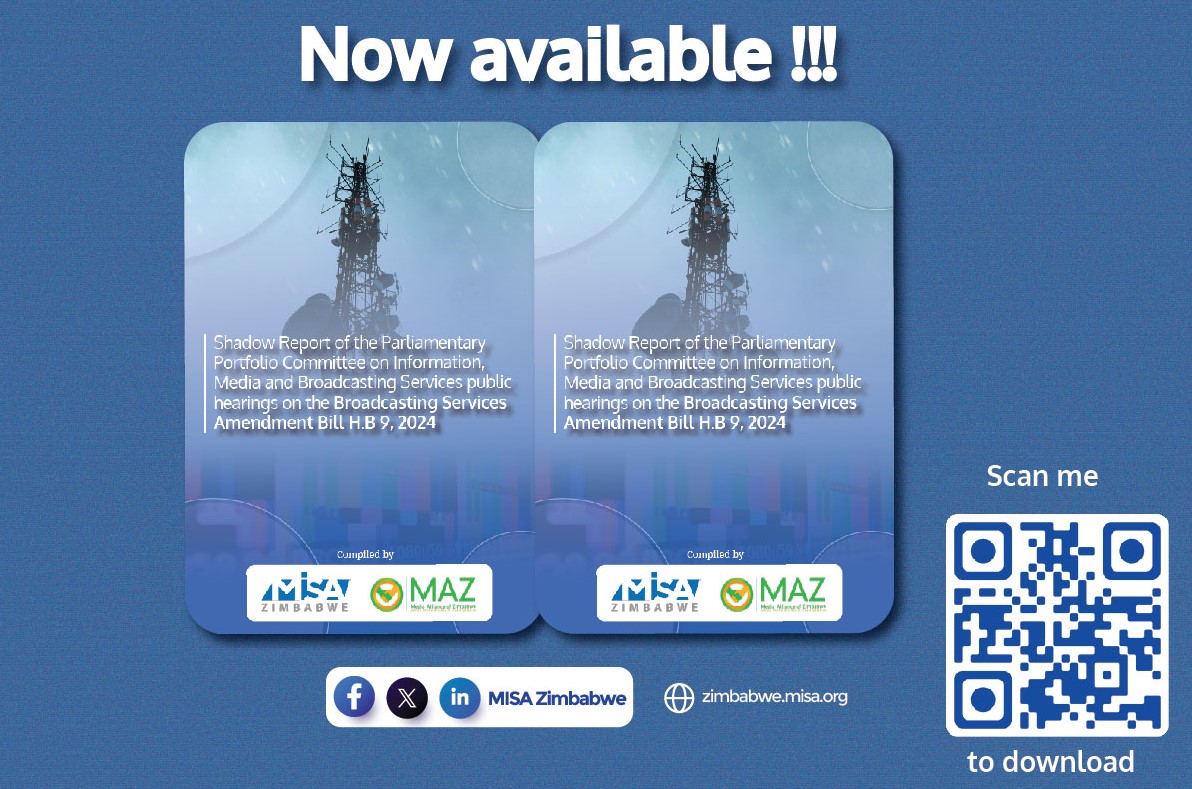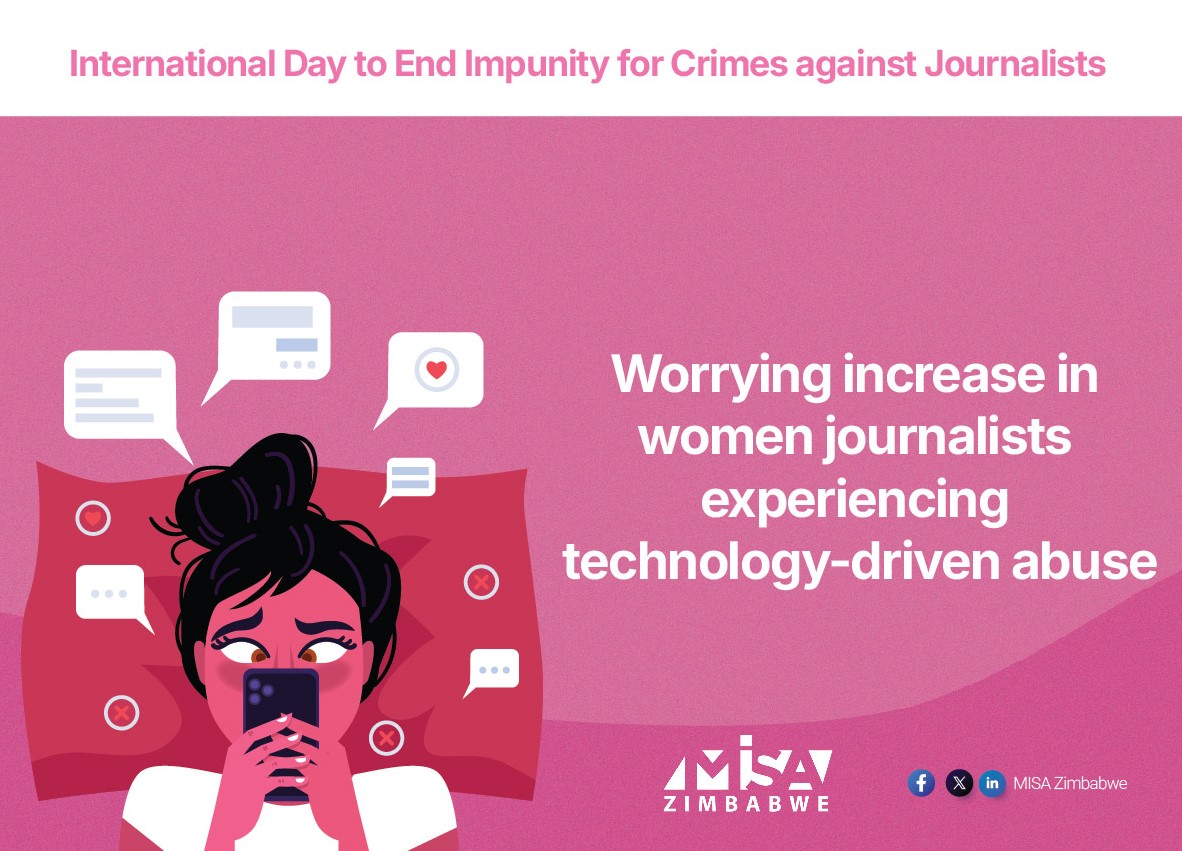Compiled by the Media Institute of Southern Africa (MISA Zimbabwe) and the Media Alliance of Zimbabwe (MAZ)
- INTRODUCTION
This report presents key highlights and a summary of submissions made by organisations and members of the public during the parliamentary public hearings on the Broadcasting Services Amendment Bill H.B 9 of 2024, hereinafter referred to as the Broadcasting Services Amendment Bill. The public hearings, convened in accordance with Section 141 of the Constitution of Zimbabwe, were held nationwide from December 16 to 21, 2024, under the auspices of the Parliament of Zimbabwe, Portfolio Committee on Information, Media and Broadcasting Services.
The Bill was gazetted on 22 November 2024 to align the law with the Constitution and the Public Entities Corporate Governance Act [Chapter 10:31]. Furthermore, the amendments aim to modernise outdated provisions in response to technological advances.
Media freedom advocacy group, the Media Institute of Southern Africa (MISA Zimbabwe) and its partners in a network of journalistic professional associations and media support organisations, the Media Alliance of Zimbabwe (MAZ) participated in all seven (7) public hearings conducted throughout the country to shadow this public process and compile this report to enhance further policy discussions and parliamentary debates on the law.
Among the key issues that dominated the submissions by participants in these public hearings was Clause 15 of the amendment, which introduces a new provision amending Section 38 B of the principal Act to prohibit the sale of motor insurance cover to individuals who do not possess Zimbabwe Broadcasting Corporation (ZBC) radio licences. A significant majority of participants in the public hearings supported this provision. However, broader issues were raised, emphasising the need to safeguard the independence of the regulatory authority, ensure transparency in the issuing and transfer of licences, maintain parliamentary oversight in the appointment process of the authority’s board, engage the public in issuing additional licences to the ZBC, and establish a converged regulatory framework. Furthermore, there were calls for the inclusion of provisions that prohibit multiple ownership of licences as a mechanism to promote media diversity.
Participants expressed support for amendments to Sections 8 and 10 of the Principal Act that would permit up to 40% foreign ownership of broadcasting services and ensure predictability in the issuing of licences, respectively. Provisions promoting gender equality were supported, alongside calls to further include persons with disabilities and young people in the composition of the Board. There was also backing for the expansion of the Broadcasting Fund to encompass the sustainability of community broadcasters.












